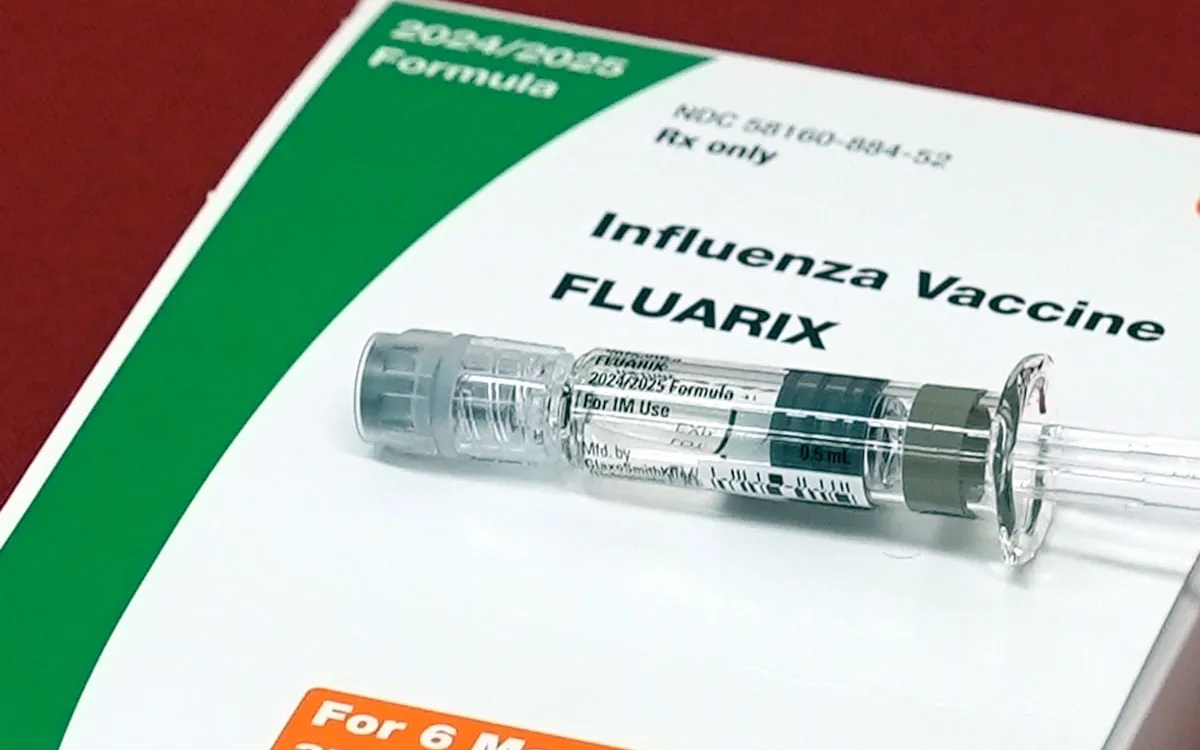
The annual influenza vaccine plays a crucial role in public health, protecting millions from the potentially severe consequences of the flu. This article delves into the complexities of manufacturing the influenza vaccine and discusses the recent disruptions that have raised concerns among health experts.
The Food and Drug Administration’s (FDA) Vaccines and Related Biological Products Advisory Committee (VRBPAC) had scheduled a meeting for March 13. However, the FDA informed committee members via email that the meeting was canceled. The Department of Health and Human Services, which oversees the FDA, did not provide any details regarding the cancellation or whether the meeting will be rescheduled.
The VRBPAC is composed of 15 members who are experts in fields such as infectious diseases, immunology, and vaccines. It serves as one of the FDA's 50 committees that provide independent scientific advice, and its meetings are open to the public. Typically, this committee convenes in February or March to evaluate the safety and efficacy of flu vaccines, discussing research and data related to circulating flu strains.
Dr. Paul Offit, director of the Vaccine Education Center at the Children’s Hospital of Philadelphia and a VRBPAC voting member, emphasized the importance of these meetings. They allow experts to review presentations from organizations like the World Health Organization (WHO) and the Centers for Disease Control and Prevention (CDC) regarding flu strains that are prevalent globally. The committee usually targets two A-type strains and one B strain for the trivalent vaccine, and its composition changes each year based on expert evaluations.
During these meetings, panelists analyze data from Southern Hemisphere countries that experience their winter season earlier, which helps predict dominant flu strains in the United States. The experts also conduct a “post mortem” on the previous year's flu season, assessing whether the chosen strains were effectively targeted. Dr. Offit noted the significance of robust debates during these discussions, highlighting the committee’s independence from the government and pharmaceutical industry.
The timing of the VRBPAC meetings is critical, as it takes about six months for pharmaceutical companies to manufacture the vaccine. Dr. Dan Barouch, director of the Center for Virology and Vaccine Research at Beth Israel Deaconess Medical Center, remarked that the cancellation represents a “clear departure from prior practice.” Timely decisions are essential to ensure that vaccines are available by fall.
Typically, the VRBPAC aligns its recommendations with guidelines from the WHO regarding which viruses to target. While some may speculate that changes in administration might influence vaccine decisions, Dr. Offit reassured that the FDA’s choices are likely to remain consistent, as both organizations often arrive at similar conclusions.
The cancellation of the VRBPAC meeting coincides with the postponement of another meeting involving an independent panel of experts that advises the CDC on vaccines. This trend has raised alarms within the scientific community about how the government will manage vaccine policy under the new leadership of Robert F. Kennedy Jr. as secretary of Health and Human Services.
Jennifer Nuzzo, director of the Pandemic Center at Brown University, expressed that while the immediate impact of the canceled meeting might not affect vaccine availability, the lack of transparency surrounding these decisions raises concerns about the administration's commitment to ensuring public health. “We need to understand the rationale behind these changes,” she said.
Dr. Offit emphasized the importance of input from external advisory committees, stating that it enhances public health decisions. The FDA has assured that strain selection will continue without delays, but experts worry that the absence of advisory meetings could hinder the quality of vaccines. Dr. Syra Madad, an infectious disease specialist at Harvard, voiced concerns about the potential dismantling of public health infrastructure and the implications for upcoming flu seasons.
According to Dr. Madad, lack of expert input may result in inadequate vaccines, leading to possible shortages. Dr. David Hamer, a professor at Boston University, also highlighted the dangers of eliminating advisory meetings, labeling the move as “short-sighted.” He warned that while it may save costs now, the repercussions could be far more expensive in the future, especially concerning the risk of broader epidemics or pandemics.
As the landscape of public health continues to evolve, the manufacturing process of the influenza vaccine remains a vital area of focus. The recent disruptions, including the cancellation of key advisory meetings, have raised significant questions about the future of vaccine development and public health strategies. Ensuring transparency and expert involvement in these processes will be crucial for maintaining the effectiveness of vaccines and safeguarding community health.